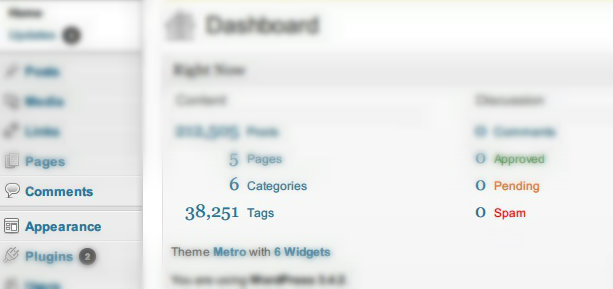I am using WordPress 3.4.2 for one of my site and currently it has 38,251 tags
Now i want to remove all Tags from my site, so which way will be more safe to truncate every tags my site has.
1 Answer
MySql DELETE syntax is not very different fiom SELECT, so you can delete from multiple tables using a single query.
Taxonomies informations in WordPress are in 3 tables:
wp_termswp_term_taxonomywp_term_relationships
the first 2 contain term / taxonomy informations, the 3rd contains association between terms and posts.
The query to delete all tags from WordPress db is:
DELETE t, tr, tt
FROM wp_terms t
INNER JOIN wp_term_taxonomy tt ON t.term_id = tt.term_id
INNER JOIN wp_term_relationships tr ON tt.term_taxonomy_id = tr.term_taxonomy_id
WHERE tt.taxonomy = 'post_tag'
Note that the prefix wp_ can be different in your setup, it depends on $table_prefix setting on your wp_config.php file. More info here.
Be sure to replace the prefix with correct value in the query for all the 3 tables.
Also note that on multisite install, the full table name is
$prefix . $blogid . '_' . $tablename`
e.g. if the prefix is the default 'wp_' the blog is 2, the 3 tables will be named:
wp_2_termswp_2_term_relationshipswp_2_term_taxonomy
More info here.
Finally, please, be sure to have a full, valid database backup before running such a query.
The query can be ran using a database admin tool like phpMyAdmin.
Running query via php is simple in one side, because using WordPress $wpdb class, table names are auto-resolved, but is a harder in another side, because you have to prevent the query run multiple times, you have to check user capabilities and you need to edit php files.
Following code use a transient to ensure that function run once, and also run it only when a super admin is logged in backend using is_super_admin().
add_action('admin_init', function() {
if ( ! is_super_admin() ) return;
if ( get_transient('tags_cleaned') ) return;
add_action( 'shutdown', 'my_clean_tags' );
});
function my_clean_tags() {
if ( ! is_super_admin() ) return;
if ( get_transient('tags_cleaned') ) return;
remove_action( current_filter(), __FUNCTION__ );
global $wpdb;
$q = "
DELETE t, tr, tt
FROM {$wpdb->terms} t
INNER JOIN {$wpdb->term_taxonomy} tt ON t.term_id = tt.term_id
INNER JOIN {$wpdb->term_relationships} tr ON tt.term_taxonomy_id = tr.term_taxonomy_id
WHERE tt.taxonomy = 'post_tag'
";
$result = $wpdb->query( $q );
set_transient(' tags_cleaned', $result );
return $result;
}
